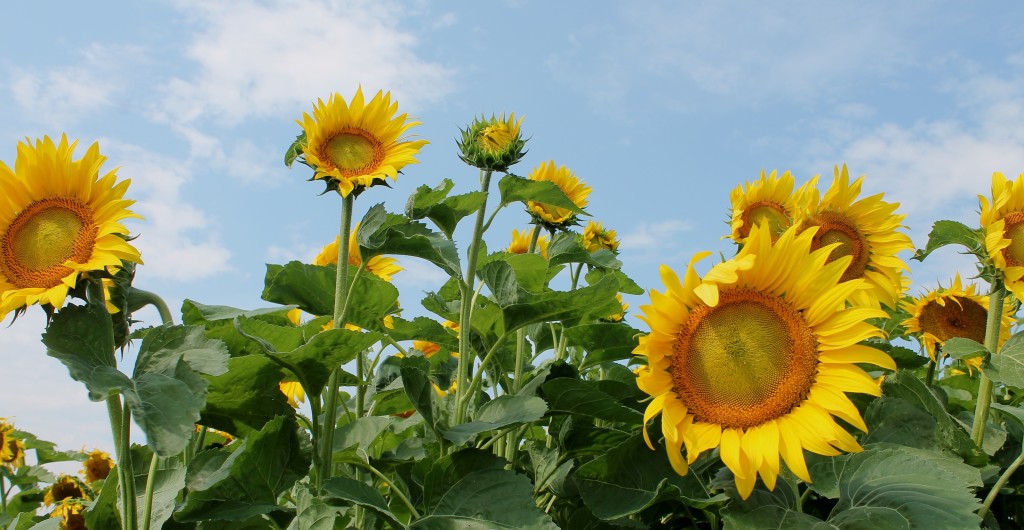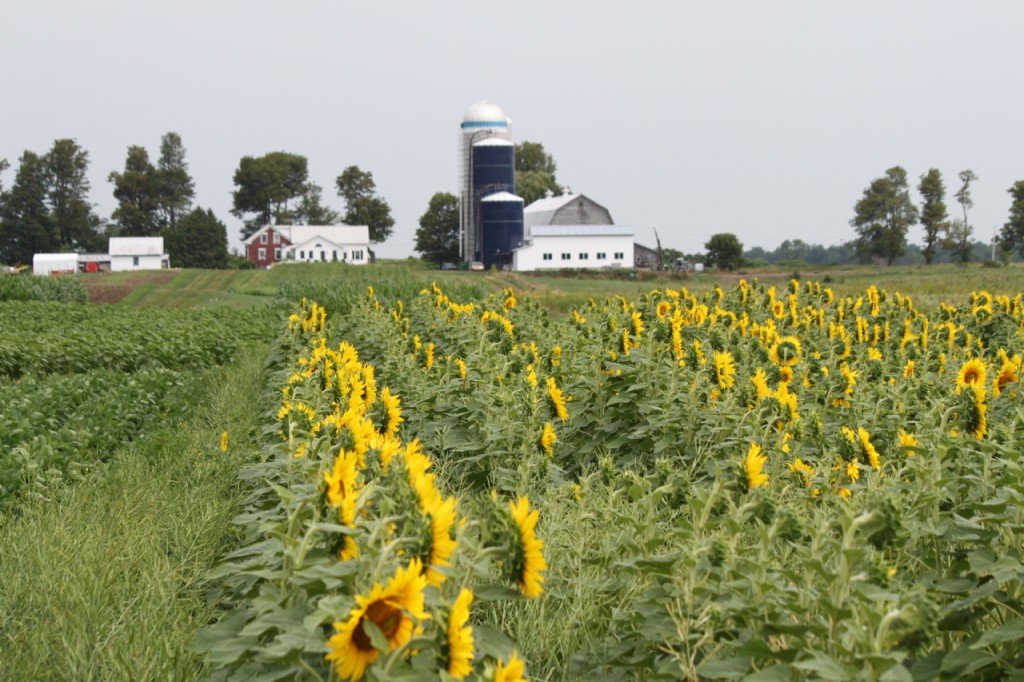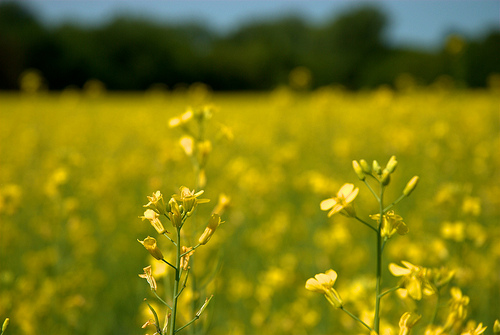A report published this week in Nature Climate Change indicated that ethanol made from corn residue can reduce soil carbon and increase CO2 emissions, indicating the harvested leftovers from corn are “worse than gasoline for global warming,” according to the Associated Press, who released the study results.
In Vermont the term “biofuel” and “bioenergy” are commonly used to refer to woody biomass (e.g., chips and pellets), anaerobic digestion (e.g., new manure and food scrap digester at Vermont Tech), and on-farm biodiesel production.
A scale-appropriate model of local bioenergy production for in-state use is being pioneered by farmers and researchers. These emerging renewable energy resources include switch grass for heating, algae production for biofuels and wastewater management, and oilseed crops for on-farm biodiesel production, equipment use, and animal feed. Since 2003, the Vermont Bioenergy Initiative has been funding research, technical assistance, and demonstration projects—along with its partners at the University of Vermont Extension—in order to develop the infrastructure to connect diversified agriculture and local renewable energy production for on-farm and community use. A new website www.VermontBioenergy.com provides a series of written and video resources in these emerging fields of bioenergy.
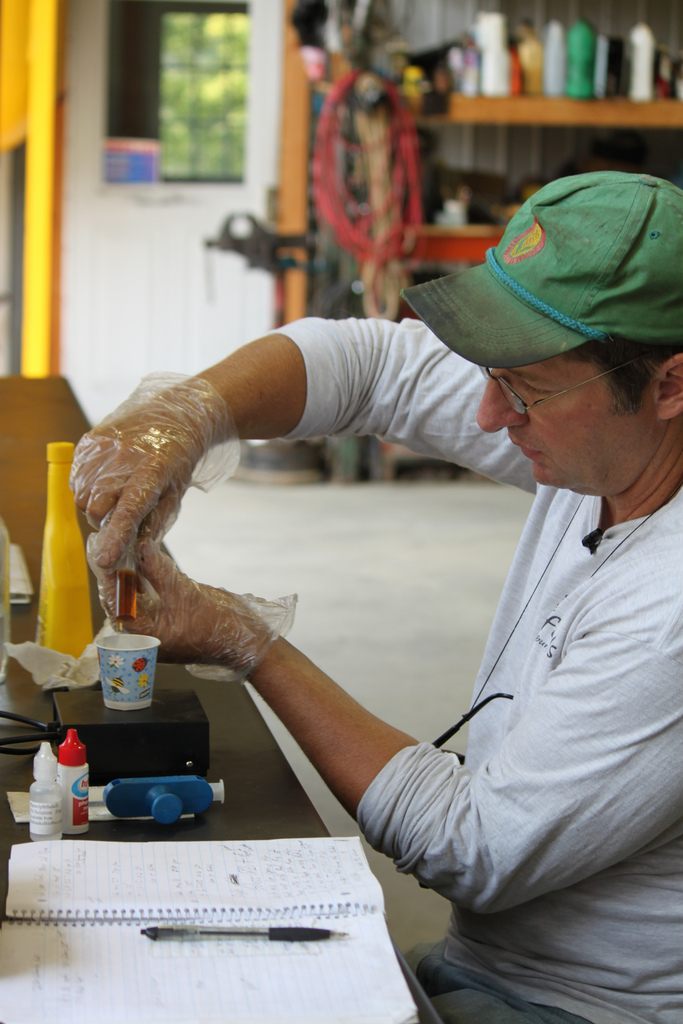
John Williamson makes biodiesel at State Line Biofuels in North Bennington, Vermont
“Local oilseed biodiesel production for local use is profoundly different from national and international models of biofuel production. While corn-based ethanol and palm oil biodiesel are gaining negative attention for their impacts on the environment and food security, biofuels that are produced and used locally help transition away from unsustainable models of food and fuel production,” states Sarah Galbraith, program manager of the Vermont Bioenergy Initiative. “Local production for local use works well in conjunction with sustainable food production.”
Vermont is particularly dependent on fossil fuels for heating and transportation, sending its energy dollars largely out of state. In the case of locally produced biodiesel, three products can be made from one crop: animal feed, organic fertilizer, and biofuel for heat, transportation, and farm equipment.
US corn-based ethanol mandates are bringing additional acres into mono-crop production, in some cases converting sensitive natural areas like native grasslands and forestland into farmland. In contrast, local bioenergy production for local use incorporates rotational crops like sunflowers and soybeans into acres already in production. Vermont farms growing oilseed crops for biodiesel production are doing so on long-established cropland in the context of diversified and sustainable food production.
The ethanol mandates are raising grain costs nationally, making feed expensive for Vermont dairy farmers. Local bioenergy production, however, means farmers produce their own feed, fuel, and fertilizer for on-farm use, at a fraction of the cost and at more stable prices.
The Vermont Bioenergy Initiative’s newly launched website features an in depth look at oilseed production and biodiesel operations with case studies, research, and educational videos. The website also features similar resources for grass energy and algae for biofuel and wastewater management as well as information on other biofuels being produced and used in Vermont. www.VermontBioenergy.com
###
The Vermont Bioenergy Initiative draws the connection between diversified agriculture and local renewable energy production for on farm and community use. Aiming to supply farm inputs and reduce fossil fuel consumption, this program supports research, technical assistance, and infrastructure development in emerging areas of bioenergy. Since 2003 the program has focused on biodiesel production and distribution for heating and transportation, oil crops for on-farm biodiesel and feed, grass for heating, and algae for biofuels and wastewater management. The Vermont Bioenergy Initiative works with biodiesel producers including State Line Biofuels and the Farm Fresh Fuel Project at Borderview Farm and grass pellet research through UVM Extension and is supported financially by US Department of Energy congressional appropriations secured by US Senator Patrick Leahy. The Vermont Bioenergy Initiative is a program of the Vermont Sustainable Jobs Fund—a non-profit organization created by the Vermont Legislature in 1995 to accelerate the development of Vermont’s green economy in the fields of renewable energy, sustainable agriculture and forestry.
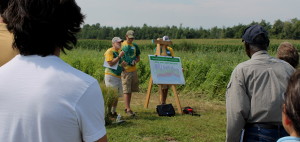 The University of Vermont Extension Northwest Crops and Soils team held their annual Field Day on Thursday, August 1, 2013 from 10:00am to 3:30pm at Borderview Research Farm in Alburgh, Vermont.
The University of Vermont Extension Northwest Crops and Soils team held their annual Field Day on Thursday, August 1, 2013 from 10:00am to 3:30pm at Borderview Research Farm in Alburgh, Vermont.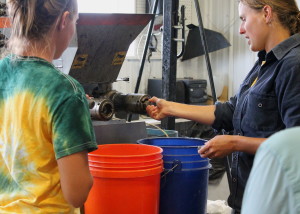 om researchers and technicians focused on cover crops, irrigation systems, sunflowers for cooking oil and biodiesel, wheat varieties, aerial seeding, hops variety trials and demonstration of a mechanized hops harvester, and demonstration of an oilseed press.
om researchers and technicians focused on cover crops, irrigation systems, sunflowers for cooking oil and biodiesel, wheat varieties, aerial seeding, hops variety trials and demonstration of a mechanized hops harvester, and demonstration of an oilseed press.



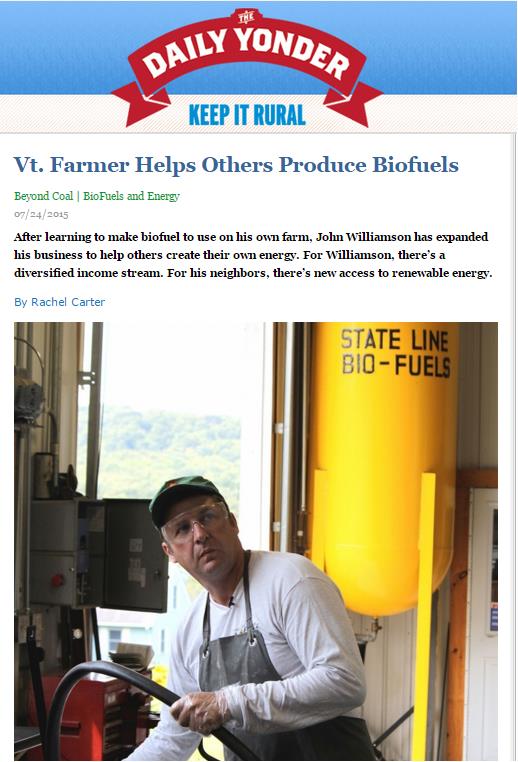
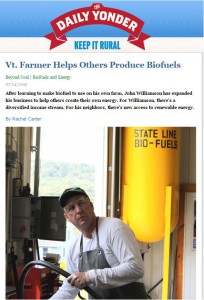
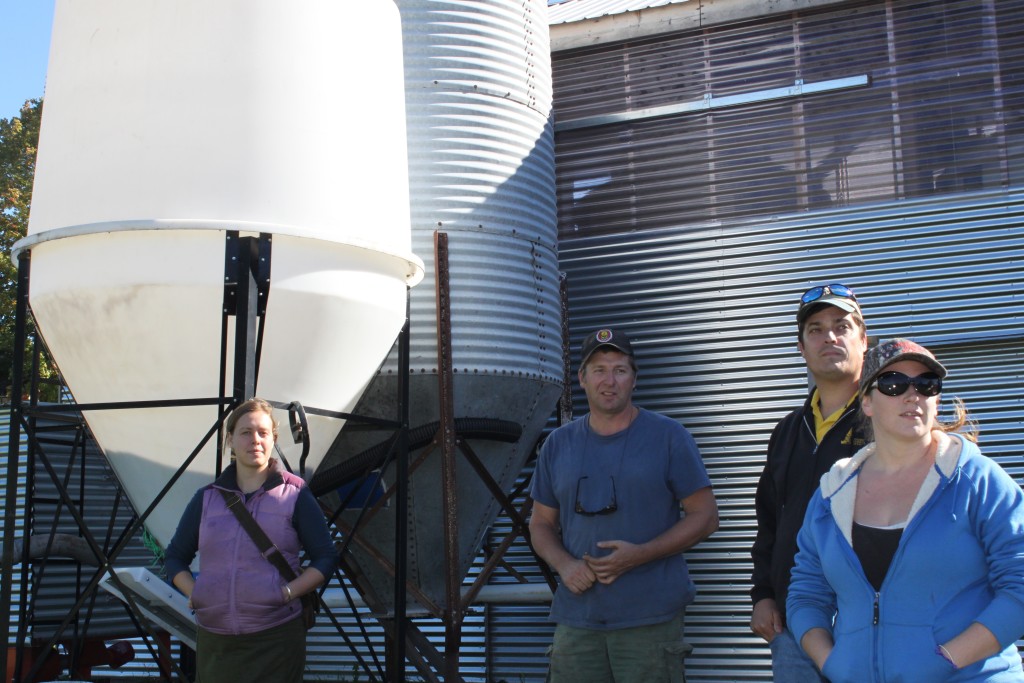
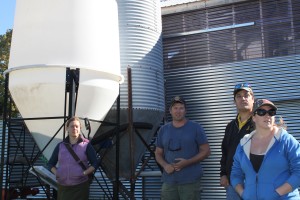 at Vermont Bioenergy Initiative has worked to put together a comprehensive list of bioenergy events for you! This list will be updated as more events arise. If you know a bioenergy events that you think should be on the list, tweet it to us! @VTbioenergy
at Vermont Bioenergy Initiative has worked to put together a comprehensive list of bioenergy events for you! This list will be updated as more events arise. If you know a bioenergy events that you think should be on the list, tweet it to us! @VTbioenergy